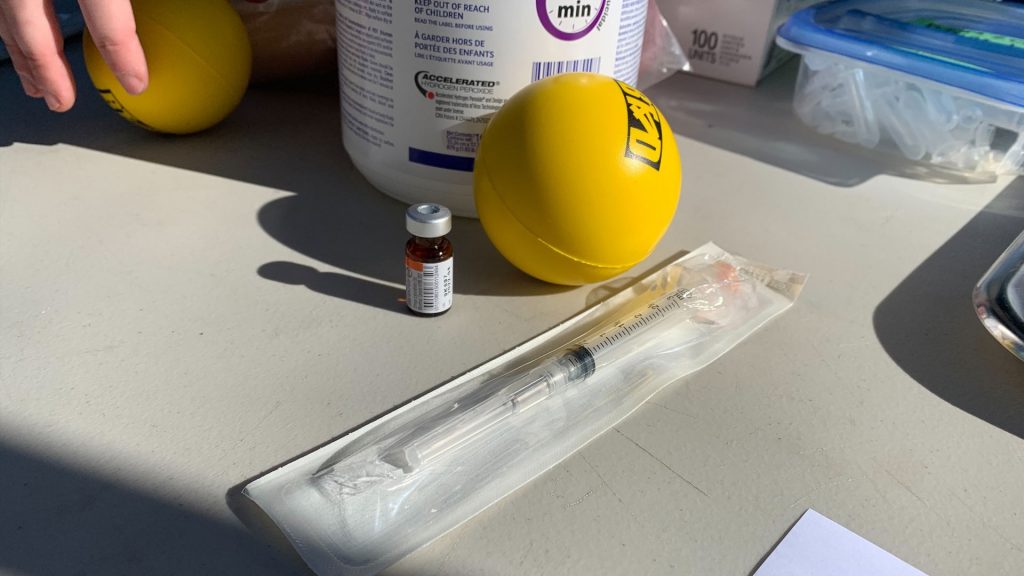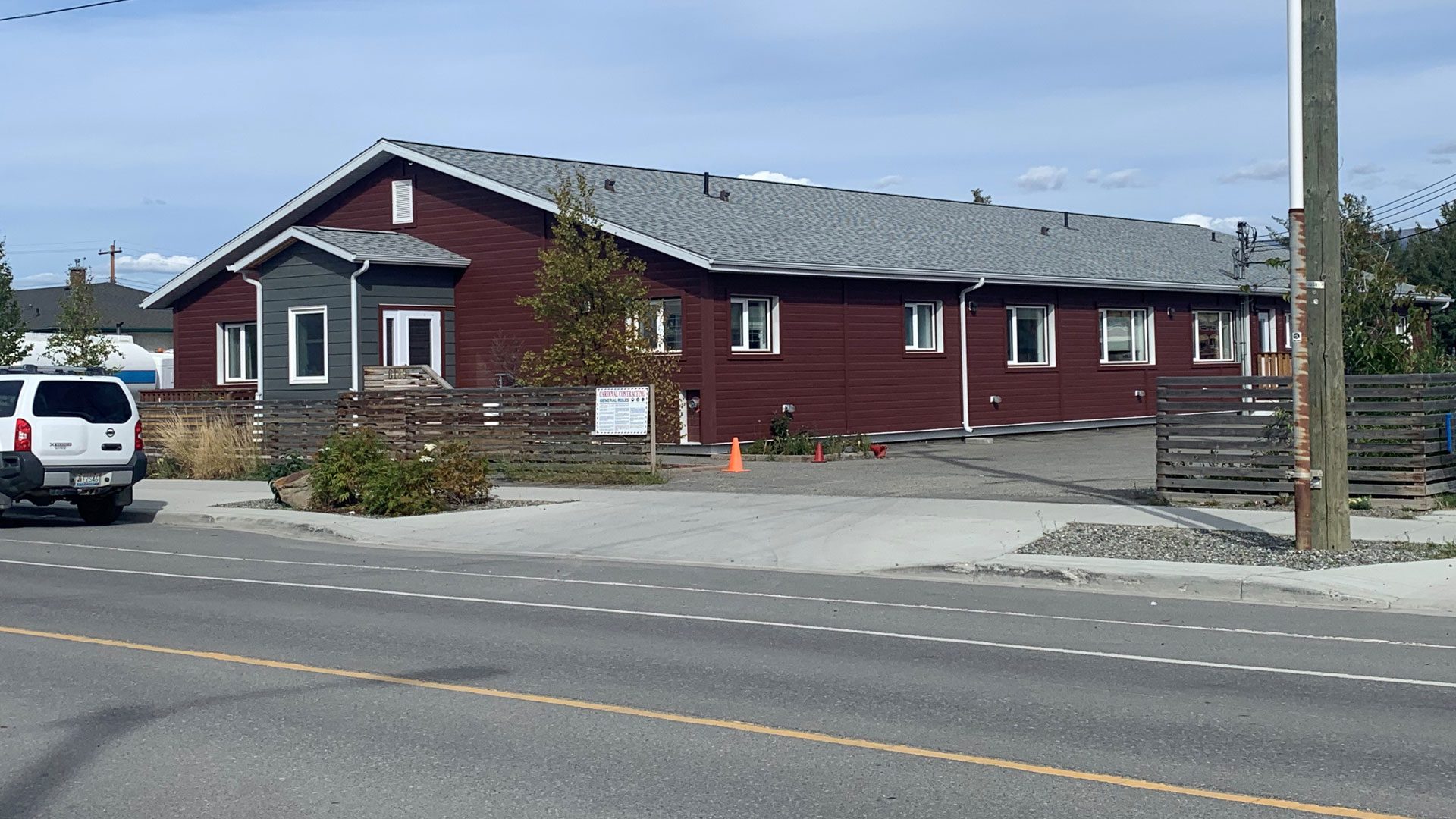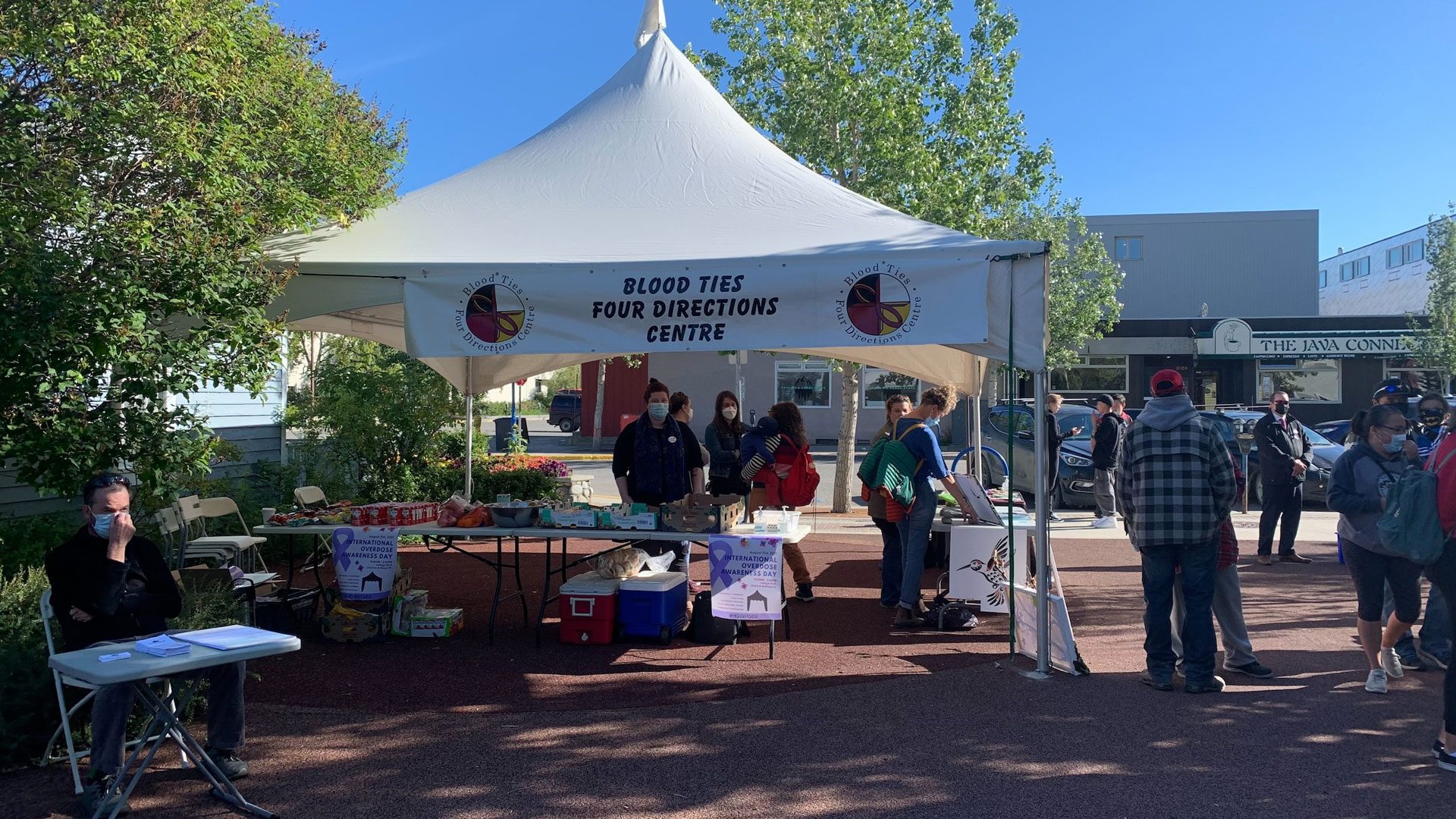
Naloxone training supplies at the International Overdose Awareness Day event in Whitehorse. Participants were asked to practice injecting naloxone into a ball. Photo: Sara Connors/APTN
The Yukon is reporting alarming statistics regarding the territory’s opioid crisis.
Yesterday Yukon’s chief coroner Heather Jones released a report stating there have been 14 overdose deaths in the territory since Jan. 1 of this year. The report notes that number is double the number of deaths that was reported at the end of April.
All of the 14 deaths “involved opioids in various formats of fentanyl and in combination with other illicit drugs and/or alcohol,” the report states.
In 2019 there were four reported opioid overdose deaths which jumped to 10 in 2020. The report states 2021 is already showing a 40 per cent increase over the 2020 total and that number is expected to grow before the year ends.
Since the opioid crisis hit the Yukon in the spring of 2016, there have been 57 drug overdose deaths, 47 of which were due to the illicit use of opioids. Of the 47 opioid overdose deaths, 83 per cent involved fentanyl.
“These deaths are occurring in young people barely out of their teens and to those well into their 70s,” the report reads.
“More and more Yukon families are being left with a devastating reality found in the wake of these lost lives. This is a pain that is now close to so many of us.”
Last year APTN News reported that at least of five of the people who died from opioid overdoses in 2020 were First Nations. Jones said in an email statement to APTN that six of this year’s 14 deaths were people of First Nations/Indigenous ancestry.
Supervised consumption site delayed
The territory’s first supervised consumption site has also been delayed.
The site, which is in a building in a mostly residential area in downtown Whitehorse, was flagged to open Aug. 31. Its aim is to reduce the number of overdoses by providing users with a supervised are to consume drugs in the presence of trained health professionals.
On Aug. 27 the Yukon government announced the opening of the site would be temporarily delayed “to account for renovations, staff training and to finalize details.”

Cameron Grandy, director of Yukon government’s mental wellness and substance abuse services, said in an email statement there have been delays in the renovation process and the finalizing of details with the site’s partners.
He says it’s now slated to open at the end of September or early October.
International Overdose Awareness Day
Meanwhile, dozens of people attended an event in Whitehorse yesterday that aimed to raise awareness for those lost to drug overdose.
In honour of International Overdose Awareness Day on Aug. 31, Whitehorse based harm reduction agency Blood Ties Four Directions Centre held an event open to the public which included naloxone training and distribution, drug checking demonstrations and other activities.
Blood Ties executive director Bronte Renwick-Shields tells APTN the event was held to “provide people with an opportunity to meet with other community members who may have lost a loved one.”
“It gives people an opportunity as a community to come together and say ‘Hey, something needs to change,” she says.

Other organizations at the event included the Fetal Alcohol Syndrome Society Yukon (FASSY) and the Yukon Anti-Poverty Coalition which provided information about resources they provide.
Blood Ties outreach van was also at the event. The van provides several free services, including drug injection and smoking kits, clothing and personal care items to those that need them. It also has a nurse twice a week that provides healthcare like STI testing, wound care and basic first aid.
Shae-Lynn Boyko, who is a van coordinator, says Blood Ties is trying to raise awareness that it also provides drug checking services to those that need them.
“It’s a really important service that we’re offering for the opioid crisis and the overdose crisis,” Boyko says.
“We try to get people to come and get their substances checked just so that they know what’s in them so that they can use appropriately if they are going to continue to use.”









